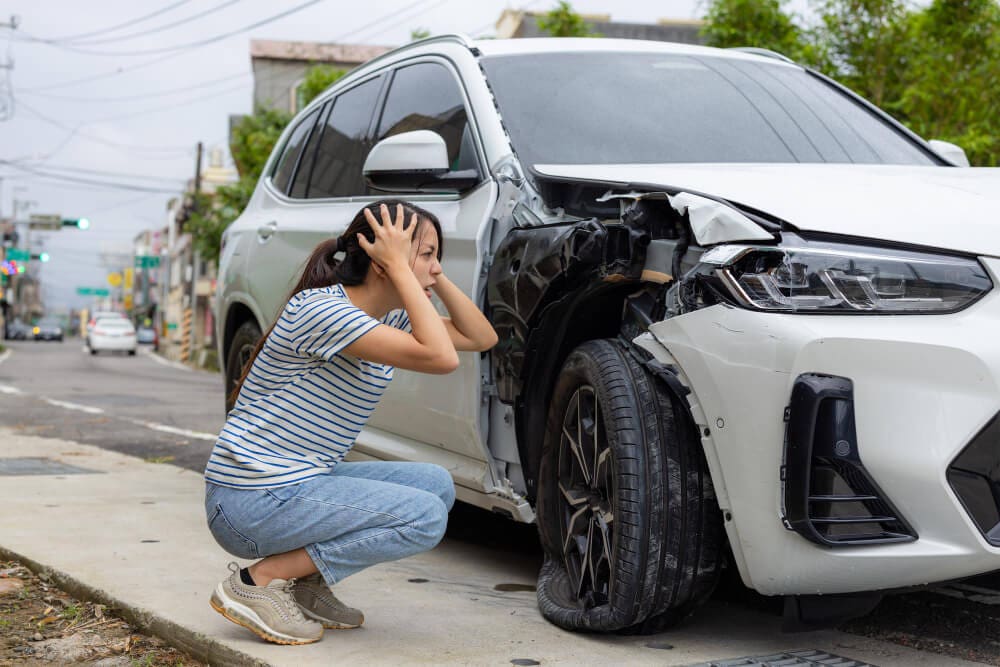
- June 26, 2024
- admin
Being involved in a car accident can be a stressful and overwhelming experience. Amidst the immediate concerns for safety and well-being, it’s crucial to know the steps to take to ensure you handle the situation effectively, especially when it comes to car insurance. Knowing how to navigate the aftermath can help you secure the necessary coverage and minimize financial setbacks.
Immediate Steps to Take After a Car Accident
Ensure Safety and Call for Help
The first priority after a car accident is to ensure the safety of everyone involved. Check for injuries and call emergency services if anyone needs medical attention. Even if the accident seems minor, it’s important to report it to the police. A police report can be valuable when dealing with car insurance claims.
Move to a Safe Location
If possible, move your vehicle to a safe location away from traffic to prevent further accidents. Turn on your hazard lights to alert other drivers. If the vehicles cannot be moved, keep yourself and others at a safe distance from the roadway.
Document the Scene
Gather as much information as possible from the accident scene. Take photos of the damage to all vehicles involved, the surrounding area, and any relevant road signs or signals. Exchange contact and insurance information with the other driver(s). Note down the names and contact information of any witnesses, as their accounts can support your insurance claim.
Contacting Your Car Insurance Provider
Notify Your Insurer Promptly
It’s essential to contact your car insurance provider as soon as possible after the accident. Many insurers have a specific timeframe within which you must report an incident to be eligible for coverage. Provide them with all the details of the accident, including the police report number if available.
Understand Your Coverage
Review your car insurance policy to understand what is covered in the event of an accident. Coverage can vary significantly depending on your policy. Typically, liability insurance covers damages to the other party if you are at fault, while collision insurance covers damages to your vehicle. Comprehensive coverage might come into play if the accident involved factors like hitting a deer or damage from natural disasters.
Filing a Claim
Your insurance provider will guide you through the process of filing a claim. Be prepared to provide all necessary documentation, including photos, witness statements, and the police report. The insurer will likely send an adjuster to assess the damage to your vehicle and determine the payout amount based on your policy coverage and deductibles.
Handling Insurance Adjusters and Repairs
Working with the Adjuster
An insurance adjuster’s role is to evaluate the damage to your vehicle and estimate the cost of repairs. Be cooperative and provide them with any requested information. You can also get your own repair estimates to compare with the adjuster’s assessment. If you disagree with the adjuster’s evaluation, you can negotiate or seek a second opinion.
Choosing a Repair Shop
Many car insurance companies have preferred repair shops, but you are generally free to choose your own. Using a preferred shop can sometimes speed up the claims process, but it’s important to select a reputable repair facility that you trust to do quality work. Ensure that any repairs are documented and that you receive a warranty for the work performed.
Protecting Yourself in Future Incidents
Review and Update Your Car Insurance Policy
After an accident, it’s a good idea to review your car insurance policy to ensure you have adequate coverage for future incidents. Consider factors such as liability limits, collision and comprehensive coverage, and any additional protections like uninsured motorist coverage. Adjust your policy as needed to reflect your current needs and circumstances.
Drive Safely and Stay Informed
The best way to protect yourself from the financial and emotional stress of car accidents is to drive safely and be aware of your surroundings. Stay informed about your car insurance policy and understand your rights and responsibilities as a policyholder. Regularly review your policy to make sure it meets your needs and provides sufficient coverage.
Maintain Good Communication with Your Insurer
Having a good relationship with your car insurance provider can make a significant difference when dealing with claims. Maintain open and honest communication with your insurer, and don’t hesitate to ask questions or seek clarification about your coverage. Being proactive about understanding your policy can help you navigate the aftermath of an accident more smoothly.
Conclusion
Knowing what to do if you’re involved in a car accident can help you manage the situation effectively and ensure that your car insurance works for you. From immediate safety measures and documentation to contacting your insurer and understanding your coverage, each step plays a crucial role in protecting your financial and legal interests. By being prepared and informed, you can handle the unexpected with confidence and get back on the road with peace of mind.

